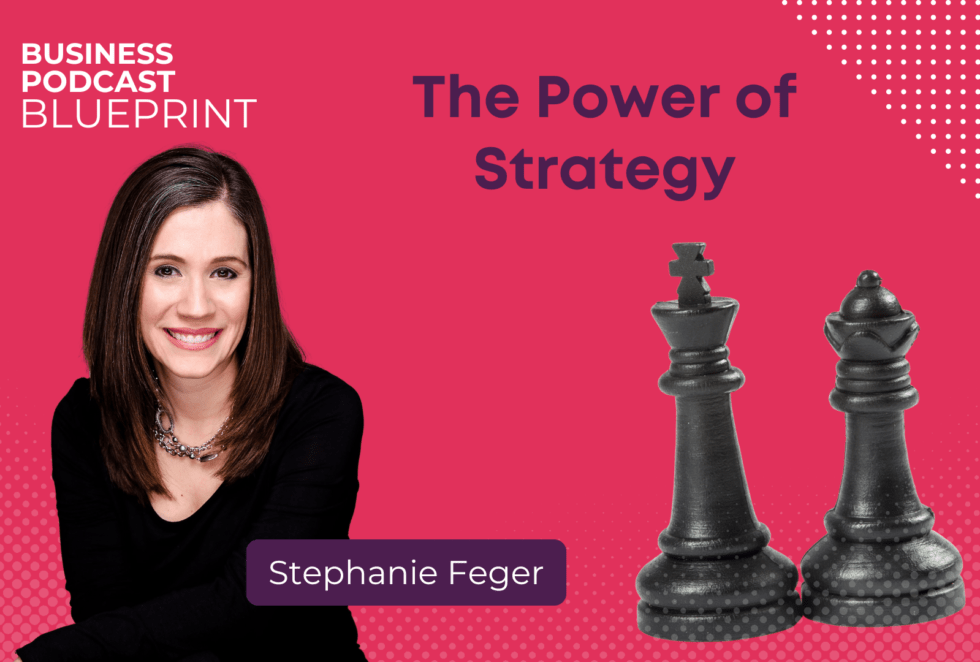This week’s guest Stephanie Feger uses a capsule podcast strategy, and it’s working like a charm! Stephanie’s approach of hyper-specific and thoroughly planned out episodes and seasons to teach and engage current and future clients is exactly the kind of use case we want to see for audience engagement podcasts. Stephanie is also a book marketing strategist and coach for nonfiction authors; she is an author herself, and a keynote speaker. She hosts “The emPowered Author: A Marketing Podcast for Nonfiction Authors” that empowers authors to take their important message and share it with those who desperately need it. We’re also talking about content planning strategies and the value of presentation and speaking skills.
Tune in to hear Stephanie and I explore:
- When you come across a hurdle or don’t know what you’re doing, just try something. Too many times we get caught up on the outcome, when we should be focusing on the action. The outcome will come! But the action will help you get there.
- The emPower PR Group is a marketing, coaching and support business for nonfiction authors, and its supporting podcast is a part of the business strategy. Each season is based on the type of marketing work they do, and is in alignment with an element that an author may or may not need. It’s meant to add value to the people who are thinking about working with emPower PR.
- Stephanie uses the emPower Podcast in the onboarding process. If a client shows interest in a specific tool or strategy, she refers them to the season of the podcast that covers that strategy. That way, the client grasps an idea of the technical side of things that Stephanie and her team handles, and they can talk about the client’s work.
- Stephanie doesn’t get hung up on metrics like downloads. The way she sees it, the success of her show shows itself in her business, which has almost tripled in growth over the year. Those numbers are much more meaningful than downloads, especially for a business podcast.
- If you don’t enjoy it, don’t do it, Stephanie advises. People will hear it in your voice, in the content you put out. Even if you have a great message, people won’t want to listen if they can hear that you’re not into it. The best podcasts are relational, not transactional.
Question of the Week:
Q: How do ads work in podcasts?
A: Lots of podcasts have ads. They can be for your own products and services. For sponsors, they can be ad swaps or promotional exchanges with other podcasters. Whatever the content of your ad, you have to make a few decisions about it. Do you want ads to be baked in as a permanent part of the episode? Or do you want them to be dynamically inserted and subject to change at a later date? Dynamic ads that can be changed later are more popular and, on balance, better for you as a podcast owner. Your podcast host should let you know if you have that capability. For both permanent and dynamic ads, you can have them either be pre-produced and ready to go and be inserted, or host read.
RESOURCES
One Stone Creative | LinkedIn | Twitter | Facebook | Instagram | Website
Stephanie Feger | Website | LinkedIn | Twitter | EmPowerPR Group

